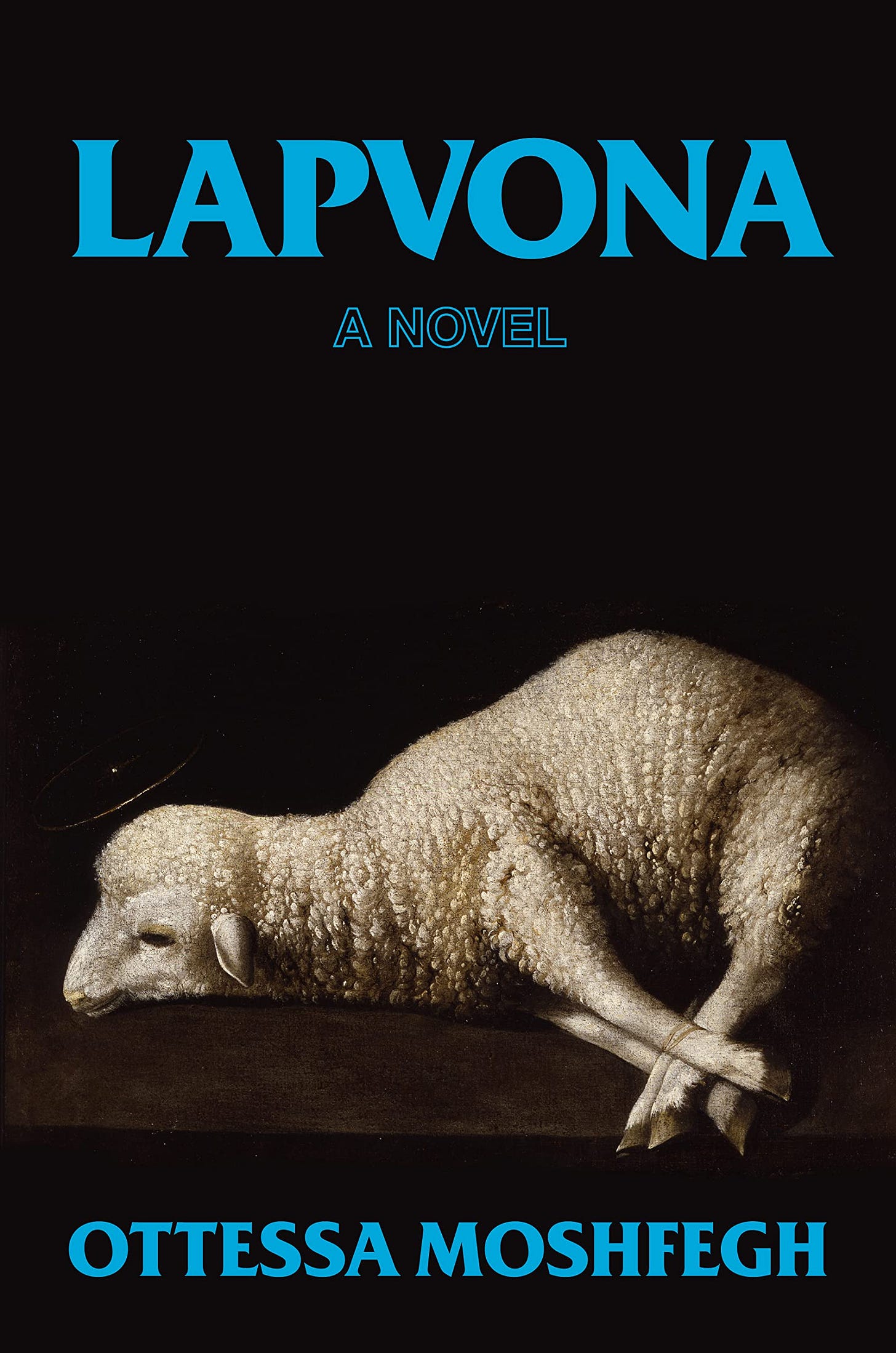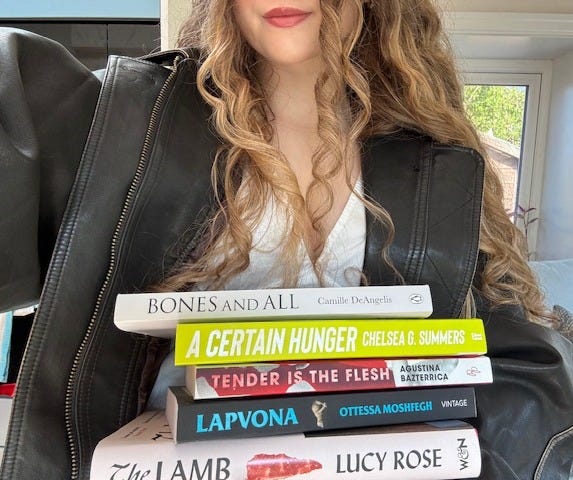Lapvona was my official christening into the horror literary genre. On the hunt for my next read, I’d plucked this title from Moshfegh’s oeuvre based on the promise of a Medieval-esque fantasy setting. The masochism, self-flagellation, religious psychosis, gore, sexuality, gluttony, folklore—and body horror— were all a surprise.
‘Set in a medieval Eastern European fiefdom and narrated from a distant third-person perspective, Lapvona has the tone of a ghoulish fairytale. Its nominal protagonist is the shepherd boy Marek, who lives near the village of Lapvona with his father, Jude. Born with physical disabilities, Marek exists on the fringes of this isolated community, which is ruled over by its decadent lord Villiam from his distant hilltop manor.’ Source
Lapvona was hard to swallow, and left me scrabbling to understand what the point is.
I experienced the same crisis at the dusk of Agustina Bazterrica’s newest publication.
In a dystopian world devastated by ecological disaster, the unnamed protagonist seeks shelter in an all-female cult ruled by strict hierarchy. Told through a series of letters scrawled in secret—reminiscent of The Handmaid’s Tale—we read in real-time as our protagonist pieces scraps of memories and trauma back together.
I finished The Unworthy on the first sunny April morning, bleary-eyed, curled on a slanted park bench, in the lunch of my 9-5 workday.
In contrast to the overwhelming opinion on booktok, complaining that her latest novel falls flat in comparison to bestseller Tender Is The Flesh, I think this is Bazterrica’s best work yet.
Sure, the narrative didn’t build to what I expected— but I gladly drank up all the beautiful prose. There’s a certain revelry in unpicking Bazterrica’s words, suspended in a tide of a mounting sense of unfurling dread, and piecing the post-modern plot devices together. Even if the ending felt like a sigh.
If you’ve read Lapvona, I won’t need to stress the grotesque, unsettling and bizarre undercurrents which poison its pages. The Unworthy hammers home a kindred dizzying, chaotic vibe, entrapping the reader in a twisted world indistinguishable from a fever dream.
The book’s narrator-come-cult member—rambling in chapter-less diary entries—seems fully indoctrinated into the mysterious religious beliefs, unquestioning of leadership and viewing her fellow inmates as competition. It is only when Lucía stumbles upon the convent that our protagonist is forced to confront her repressed memories of the outside world and, in a Sapphic twist, finds a spark of hope.
Beyond the madness of both, there are also similarities between how Lapvona and The Unworthy explore body horror:
The cruelty of humanity is contrasted by the purity of animals: To the unnamed protagonist in The Unworthy, her cat ‘Circe’ is a lifeline, and she survives with the adaptability of a tarantula; Lapvona’s Marek laments about the purity of sheep, while rare moments of tenderness from his father, Jude, come from his flock-tending.
The issue of consent is perversely twisted in each novel, and
The Catholic-reminiscent belief that purity is achieved through pain is a major theme of both—with scenes of brutal physical punishment, mutilation and self-flagellation plaguing each narrative.
Coincidentally, both Lapvona and The Unworthy are my favourites from each author’s respective collections.
Body horror is super trendy right now. The Substance and Yellowjackets as point in case. Unfortunately, most cross boundaries into suggestions of sexual violence, which I strongly feel shouldn’t be depicted onscreen (or stage), but that’s a discussion for another day.
All being said, If you’re after a short, sharp, horror to read— give The Unworthy a go and let me know your thoughts.
As always, thanks for reading!
My previous post:
Similar reads!











